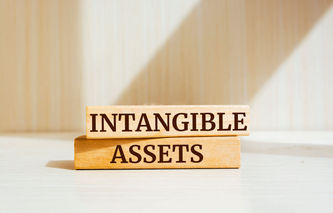Definition
The term excess of cost over fair market value of net assets refers to the difference between the price paid for a bundle of assets and their net value as determined through a professional appraisal. Determining the excess of cost over fair market value is typically required when one business buys another, with the excess cost being applied to goodwill on the balance sheet.
Calculation
Goodwill = Purchase Price - (Assessed Value of Assets - Liabilities)
Where
Fair Market Value of Net Assets = Assessed Value of Assets - Liabilities
Explanation
When one business acquires assets from another, the acquiring business must determine if the price paid for those assets was in excess of their fair market value. When one company acquires another, this process becomes more complex because this assessment will involve both assets and liabilities of the acquired business.
This process is more complicated than simply comparing the price paid to the net book value of the assets. While it might seem counterintuitive for a company to pay a premium over net book value, this can happen for some very good reasons, including:
Negotiating Skills: oftentimes the price paid is both a function of the assets involved in the transaction as well as the negotiating skills of each party.
Inventories: if the acquired company used a LIFO approach to valuing inventory, and the prices for their products have been increasing over time, the value of inventory appearing on the balance sheet may be understated.
Property, Plant, Equipment: estimates of useful lives may have been too conservative, resulting in equipment with significant serviceable life remaining, but little or no net book value.
Intangible Assets: this category can include future earning potential, strong brand loyalty, exceptional credit ratings, as well as a superior management team or employee base.
When the purchase price is different than the fair market value of net assets, the difference is categorized as goodwill.
Example
Company A has entered into an agreement to acquire Company B for $1,500,000. The balance sheet of Company B is as follows:
Assets | |
Cash | $90,000 |
Receivables | $75,000 |
Inventories | $200,000 |
Property, Plant, Equipment | $900,000 |
Total Assets | $1,265,000 |
Liabilities and Owner's Equity | |
Current Liabilities | $125,000 |
Capital Stock | $500,000 |
Retained Earnings | $640,000 |
Total Liabilities and Owner's Equity | $1,265,000 |
Prior to acquisition, Company A hired an appraiser to assess the value of Company B's assets. During that review, inventories were valued at $350,000 and property, plant and equipment at $1,000,000. This assessment resulted in a fair market value of net assets of $1,390,000 as demonstrated in the table below.
Master Valuation Approach | |
Cash | $90,000 |
Receivables | $75,000 |
Inventories | $350,000 |
Property, Plant, Equipment | $1,000,000 |
Current Liabilities | ($125,000) |
Fair Market Value of Net Assets | $1,390,000 |
Purchase Price | $1,500,000 |
Goodwill | $110,000 |
Since the price paid for these assets was $1,500,000, Company A booked $110,000 to the intangible asset goodwill.




.png)

